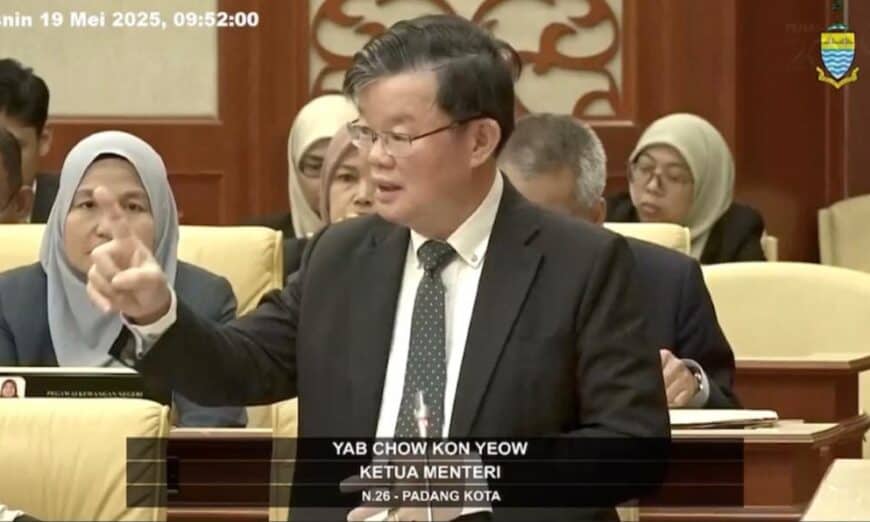THE Penang government is actively assessing the impact of new US tariffs on local industries while exploring long-term strategies to diversify its economy, especially beyond its reliance on the electrical and electronics (E&E) sector.
Chief Minister Chow Kon Yeow said the Penang Tariff Monitoring Taskforce, formed to address potential trade disruptions, has completed a series of engagements with federal agencies and industry players.
Key concerns raised during these sessions include employment security, trade volume fluctuations, and the need for broader economic diversification.
“There is concern that a global economic slowdown could lead to hiring freezes or even retrenchments.
“However, so far, we have not observed any significant job losses.
“The state saw a short-term spike in exports as companies rushed to ship goods to the United States before the 90-day tariff window expired.
“Despite initial uncertainty that triggered speculation about relocating operations to countries like Mexico and Brazil, I believe the situation has since stabilised,” Chow (PH – Padang Kota) said during the State Legislative Assembly Sitting at the State Assembly Building in Light Street today.
Chow further commented that those early reactions were merely knee-jerk moments.
“Companies are now taking a more measured approach to reassess their strategies and understand the long-term implications.
“While the unpredictability of the global trade environment is delaying some investment decisions, particularly in production, I am optimistic that a clearer picture will emerge over time,” he added.
Chow, while answering his oral questions by the state assemblymen, also took supplementary questions from Wong Yuee Harng (PH – Pengkalan Kota), Gooi Hsiao-Leung (PH – Bukit Tengah), Lee Khai Loon (PH – Machang Bubok), and others, on the issue of US tariffs.
Acknowledging Penang’s heavy dependence on the E&E sector, Chow said the current climate presents an opportunity to shift towards new growth areas.
“We must identify transformative steps to reduce reliance on a few dominant sectors.
“This is the right time to scale up our local large companies (LLCs) and small and medium enterprises (SMEs),” he said.
He pointed to the medical device and halal industries as promising areas for growth.
“We are already seeing progress in medical devices. As discussed in the state assembly, we also aim to elevate the halal sector, which has the potential to attract billions in investment,” Chow added.
Chow, who oversees the Finance, Economic Development, Land, and Communications portfolio, revealed that the United States was Penang’s second-largest export destination in 2023, with exports valued at RM76 billion, accounting for 17% of the state’s total exports.
In 2024, Penang recorded a trade surplus of RM57.7 billion with the United States.
However, Chow warned that Penang will inevitably feel the effects of the ongoing US-China trade tensions, given the state’s close trade links with the United States.
In response to a question from Lee on the solar panel industry, Chow clarified that the sector has largely relocated operations abroad, particularly to Vietnam.
While some have criticised Penang’s cautious approach to foreign investments, especially in sensitive sectors like solar energy, Chow defended the state’s long-term strategy.
“Had we retained the entire solar panel sector here, we might be more exposed to punitive tariffs.
“By allowing a selective relocation, Penang has avoided being a primary target of US tariff measures,” he added.
Chow concluded that Penang’s focus on attracting high-technology industries is yielding benefits and that its prudent investment strategy is helping the state remain resilient amid global uncertainties.
Story by Kevin Vimal
Pix by Nur Batrisya Idris

